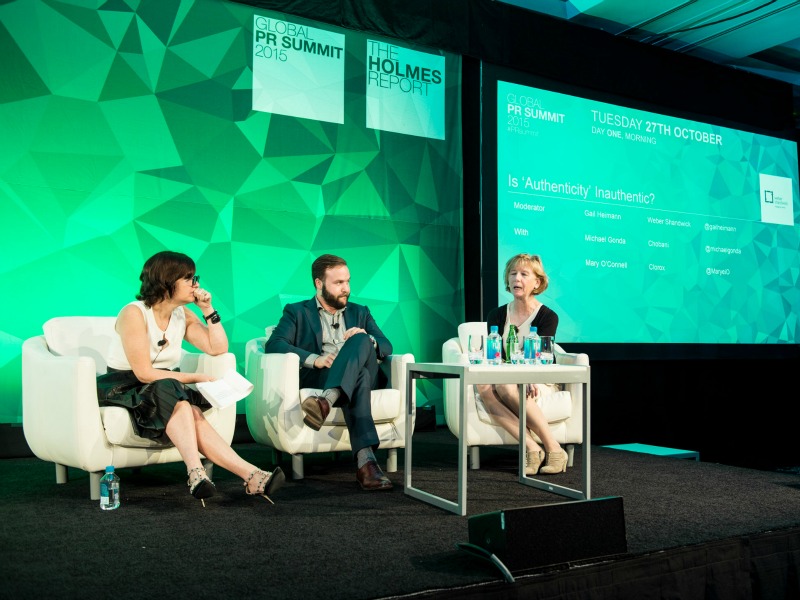Arun Sudhaman 27 Oct 2015 // 3:04PM GMT

MIAMI—The term 'authentic' is in danger of being overused, but still counts for something in an era of increasing scrutiny, delegates heard today at the 2015 Global PR Summit in Miami.
Weber Shandwick president Gail Heimann moderated the session, which featured Chobani corporate communications VP Michael Gonda and Clorox senior director of global digital marketing, social media and PR Mary O'Connell.
Heimann pointed out that the use of 'authentic' has grown 74.5% since 2012, to 8,069 press releases and 20,471 media stories. She then asked Chobani and Clorox what they do to ensure their companies are being authentic, rather than just talking about it.
For Chobani, said Gonda, it means a focus on core values, in particular Chobani's focus on DNNA — 'delicious, nutritious, natural and affordable' — along with a commitment to give away 10% of its profits to local communities.
At a much older brand like Clorox, O'Connell pointed out that "for any brand to be alive and to be awesome after 100 years, you understand that your place on the pedestal is not guaranteed."
Yet Clorox has found itself "transformed" by the acquisition of Burt's Bees, a much smaller company that has brought a focus on sustainability. O'Connell added that the vogue for 'disruption' should not be limited to tech-based startups.
"P&G is winning a lot of correct attention and honour for #LikeAGirl," said O'Connell. "I think that’s disruptive, and maybe even more disruptive than Uber."
The panellists closed by providing their own definitions of authenticity. For O'Connell "authenticity isn’t what you say you are, it’s what you do."
"While we’re talking about it a lot — I think we’re not doing it a lot," she continued. "Brands have to be more authentic than presidential candidates. There’s a watchfulness of holding you to who you are or what you said. There’s a level of transparency right now that’s expected."
While brands are producing much more content and are increasingly active on various platforms, Gonda noted that "ubiquity is not antithetical to authenticity."
"What has changed is scrutiny — from consumers, associate channels and media," said Gonda. "Authenticity is when a brand's bones, skin, mind and soul are equally strong, working as one in good times and bad."


































.jpg)





.tmb-135x100.jpg)











